| EYESHOT
HATH ARISEN LIKE THE MIGHTY JESUS H. FREAKIN' PHOENIX JORDAN JAY-Z COMEBACK
TOUR ONLINE SEMI-LITERARY EXCELLENCE EDITION JULY-AUGUST 2010 AND FOREVER
AFTER TIL DEATH DO US PARTY DOWN FRENZ & FURRIES SUFFERING THIS HEAT
& HUMANITY AMEN |
ALL BRAVE
SOULS!
Disoriented?
Here's the haps, the huhs, the welcome home hugs.
7 REASONS
TO QUIT YOUR JOB TO WORK ON YOUR NOVEL
Lackluster advice
re: what the title says.
EYE SH*T YOU
NOT
Recent/ancient links
with rushed, haphazard, superficial commentary.
Q&A WITH
AN ALUMINUM SHARK
Finally, the
voice of a shiny metal shark is not only heard in your head.
SELECTED READERLY RESONANCE CHAMBER
REVERB
Let's peek at a
few Brat Pack books, shall we?
)
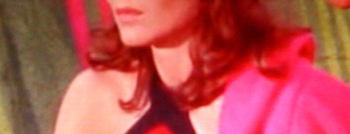
A SHORT ESSAY ON ROBERTO BOLAÑO
BY KEVIN HYDE
"I remembered the
stories of the Amazons, unconquerable warrior women. What if I wandered
deep into the forest and found them? What if, like the other things in
the forest, they grew to unbelievable size, even bigger than in the myths?" |
|
|
|
B R A V E S O U L S
R E C E I V E
EYESHOT'S
FRIENDLY & INFREQUENT UPDATE
Enter your e-mail below
or learn
all about
eyeshot-brand
spam

|
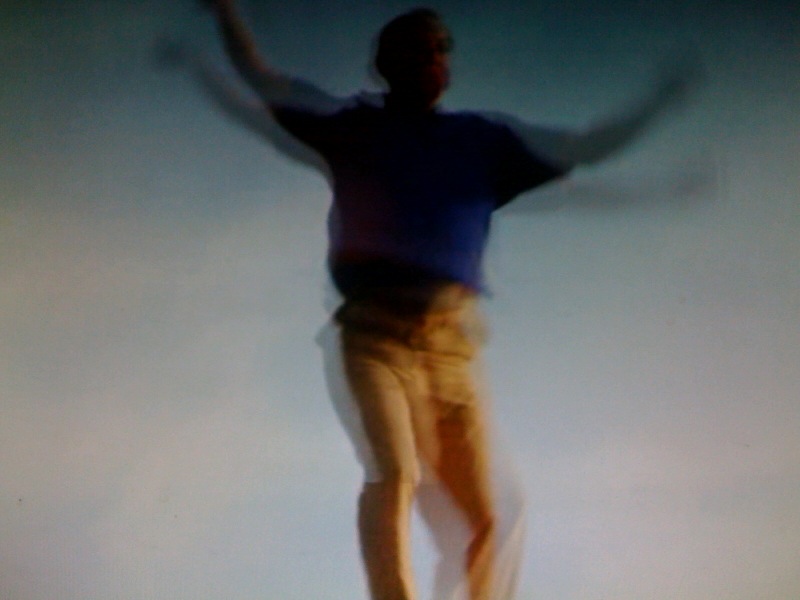
ALL BRAVE SOULS!
Ye olde ever-rising/ever-falling Eyeshot
hath risen again on the 4th of July like the mighty phoenix dodo of yore
to offer gentle readers a bimonthly source of sweet heavenly gooey inspirational
oddities and small silent glories of a fictional sort, maybe. We bring
this to you in a bimonthly format so you can read what's maybe a
story that doesn't totally entirely absolutely completely underwhelm to
highest heaven and also so you can read (or reread) something
we've posted since 1999 -- and we also decided that after about
nine years of fighting it we'd add some sort of baggy
half-assed bloggery action but this little operation ain't gonna be
an everyday deal (we hope) and it'll sometimes be accompanied by a bit
of relatively flat, superficial commentary. Plus we thought we'd include
some brief non-hyperiffic impressions of books
that aren't necessarily new or by people we know etc and also we thought
we'd help everyone out by providing some questions and
answers about everything and also extremely stupid/idiotic/dumb
numbered
tips about something related to the art and/or
practice of fiction writing.
Submissions
are being accepted and rejected but we'll only reply to submissions (other
than acceptances) with an e-apology when we post the new Eyeshot installment
(please realize that the level of literary scrutiny for submissions is
gonna be superhigh since we'll only post six or so stories a year at this
rate, although it's possible we may post more than one story per installment
sometimes?). We've changed our font and format for now but we
refuse to further develop our rudimentary web design skills into fancy
flash or wordpress-type territories. August marks our eleventh year of
doing this, with a few breaks, but it seems that at some deep
scary level we need to do this damn site, it's been part of who we
are, so please read what's new here below and Mike
Ingram's psychedelic golf story, peruse the semi-endlessly scrolling
10-year archive of what's old
here,
and decide to participate
and/or read on and/or not. Anyway, welcome to July-August's Eyeshot. In
September, we'll try to do another one and make it look totally different
if we can.

|
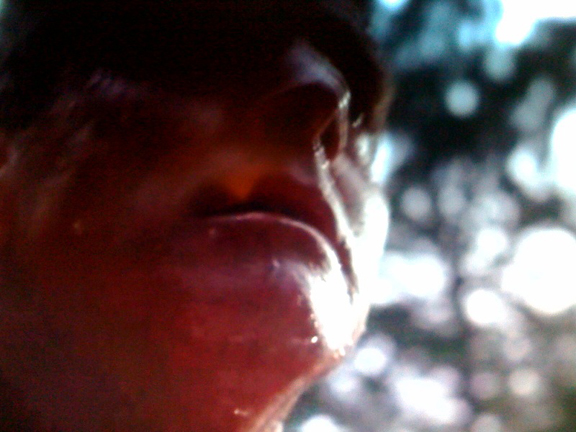
7 REASONS TO QUIT YOUR JOB TO WORK
ON YOUR NOVEL
7. You're
so talented. Online writer friends tell you this all the time.
6. You're
wasting your life at that job that indirectly pays for everything you
do.
5. Novels
need you to breathe life back into the form, even if your novel will
be semi-autobiographical, linear (except for a bit of interspersed backstory
about some poignant moment of gauzy innocence), mostly set in Williamsburg,
first-person POV, in the present tense, and not much longer than a novella.
4. You tried reading that work
novel in the first-person plural POV ("we") and you know your own work
novel is better, plus your work novel can't fail to intrigue agents, editors,
general readers, academics, and the gatekeepers
of posterity because, although not set deep
in the heart of the Texas or the "inner city," it's presented in the
second-person
plural POV ("all y'all).
3. You know you have considerably
limited talent and ambition and discipline and understanding of grammar
etc and there's no market for semi-autobiographical novellas like the one
you started that's set in NYC etc etc, not to mention e-readers turning
texts into easily
stealable mp3-like files etc etc but if you work another day in a cube
surfing freakin' lit web blogs and wanting to reach through the screen
to reprimand those who refer to books by former teachers and friends as
works of startling interiority ("to live outside the law you must be honest")
and maybe are in need of some sweet sweet seppuku
or at least a sense that Dennis
Cooper is not God then well what the hell were you saying again?
2. You know everything
goes in cycles so we're bound to run into another late '90s–like run
of multimillion dollar contracts for first novels very soon.
1. Kafka
worked in an office and things turned out OK for him even if he died
of consumption. Are you willing to have things turn out OK writing-wise
and also die of consumption? Yes, you're totally willing to
die of consumption (excessive buying of lots of stuff, right?) as long
as it lets you become immortal before you die so you peer over the shoulders
of hot young things who read your stuff lying out in the sun at the pool
but then get distracted by a text message and forget about cockroaches
and hunger
artists and sins etched across one's back -- I mean, THREE TIMES you've
been nominated for a PUSHCART and you've been in the running for STORYSOUTH's
best of the web and in Dzanc's best of the freakin' web book so
yeah it is time to do
what needs to be done, to take arms against a sea of work-related spreadsheets
and release yourself into all-day/everyday literary pursuit! Make sure
to start a blog updating your progress so readers can follow your decline
into lethargy, indolence, intemperance,
and realize maybe just maybe oh shit what have you done. (Note: it is quite
possible that quitting your job to work on your novel may yield an unpublishable
memoir composed entirely of such devolutionary blog posts, and if all else
fails, assuming you're still young and comely, have you ever considered
employment in a nearby major city's lucrative sex
tourism industry?)

|
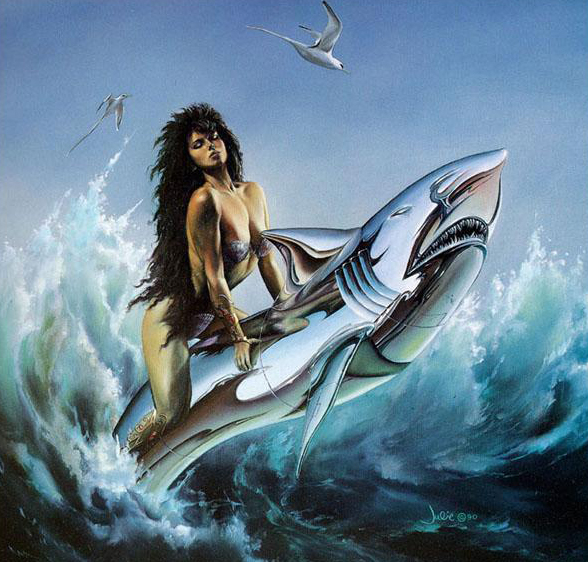
ASK AN ALUMINUM SHARK
For further in-depth ongoing Q&A,
plus Eyeshot reader commentary re: everything, see here.
Aluminumshark at gmail also works should you have important questions in
need of answers.
Q: Should I write a facebook
status at the end of the day about all the writing and/or editing I've
done so people know I'm a writer/editor
hard at work posting facebook status updates about my writing/editing?
A: It's true that, being a shark
composed of cheap yet very shiny aluminum (see pic above), I personally
don't have a facebook page (yet), but I would like to think that signaling
your literary activity, no matter how minor, is a good way to announce
to friends that you are an artist concerned about your "work."
This is especially good if you have become friends with well-known
writers and editors and the like a few steps up the literary ladder
who will surely see these updates every day and think, yes, here is a young
man/woman who is on his/her way to a lesser PEN
award, if not a runner-up notice in a Glimmer
Train or Narrative Magazine competition, and, as such, I must do what
I can to grease his/her passage to that literary
paradise. Although I am merely a shark composed of shiny
shiny shiny strips of aluminum, I'm sure I am correct about this --
three rows of 32,000
razorsharp aluminum teeth can't be wrong.
Q: The third-string QB for
the Philadelphia Eagles is named Kafka,
the Flyers are apparently negotiating for Nabokov to play goalie, so who
is the next literary figure to be added to the Philadelphia sporting world?
A: Beckett would be a sweet
addition to the Phils' starting pitching staff if the Red Sox were willing
to part with him. Can we petition David Stern and/or Comcast Spectacor
to change Andre
Iguodala's surname to Madox
Ford. (AI2 should really be willing to do this, considering the ridiculous
size of his contract.)
Q: How can I tell if an animal
is really a service animal and not just a pet?
A: Hmm. I don't know. What metal
is this animal made from? Polysynthetic
carbonate is top-of-line standard these days for service animals. Pets
are generally made of cheap tin. The more things change, the more
landfills become goldmines for metal pets.
Q: I'm not sure I understand
what you mean? Landfills become goldmines? Huh?
A: Screw you. Stick to
the format. This is a Q&A, not a
dialogue.
Q: 'Word on the street' is
that Eyeshot 'posted' very early work, if not the very first online-posted
'texts,' by Tao Lin and
Blake
Butler? Whose early 'story' do 'you' think is 'better,' and what do
'you' think of these 'online' writers today?
A: Stop reading lit sites, including
Eyeshot. Take some serious
19th century lit to the park. Get offline. Sweat.
Q: I've heard that quitting
daily cigarette smoking is smart in terms of one's health, one's finances,
and how one smells (both one's ability to smell someone else and the degree
to which someone else may smell you). Do you have any advice about quitting,
dearest Al
Shark? And what about hunting and killing antelope by hand?
A: I know that -- way back when
I used to smoke and lived on land instead of in the water, often with an
airbrushed brunette astride my dorsal fin -- that I found it very hard
to run after antelope for hours without stopping to smoke and/or hack up
my lungs. But since then -- part of how I became an aluminum shark, in
fact -- I've learned a technique I can impart to you: buy a big jug or
two of cranberry juice, a bag of Hershey's chocolate miniatures (store
in freezer), and a bottle of Advil (and maybe Nyquil, too). Every hour,
pour a small glass of juice and down a piece of chocolate. Take Advil regularly
and a little Nyquil at night to knock you out. Do this for three days and
you'll be clear. It works because when you need a cig, that feeling is
very similar to how you feel when your blood-sugar level drops. Therefore,
by maintaining a consistently elevated blood-sugar level, you'll minimize
that lovely "nic fit" feeling. Trust an aluminum shark on this. Also, what's
cool is that once you quit, your face will immediately seem to brighten
up, your food will taste better, you'll have a lot of extra cash (think
of all the unnecessary junk you buy at the CVS when you buy a pack), and
you'll be a much better persistence
hunter, which is very important if you intend to primarily subsist
on antelope, which is only recommended, really, for bushmen in Africa who
might be reading this. Click click click click. Or for those hardcore runner
freaks who simulate the antelope hunt by running in those weird semi-barefoot
footwear things that make their feet look like duck
feet as they run really fast and then walk and then run really fast
and then walk, trying to exhaust an invisible antelope, which is really
what we're all trying to do in a way, right? Aren't we all chasing and
trying to outlast a much faster invisible quarry until it's exhausted and
we can put it out of its misery with a quick jab to the gut and then skin
it, butcher it, and roast it over an open fire and then feast on it with
our friends? In lieu of sitting around a fire like this, however, I guess
for now it's perfectly reasonable to sit around and huff on cigs? We're
the only animal who figured out how to control fire like that. And
also there's something to be said in favor of maintaining an easily manageable
addiction -- the satisfactions of intermittently fulfilling a need . .
.
Q: What's your opinion of brunch?
A: The crowds, the wait, the
excessive morning noise when hungover, the unnecessary expense, the estrogenic
flowery touches on the tables, the watery eggs Benedict, the underdone
home fries, the vegan chorizo egg-less omelets, the rosewater tempeh and
poached albatross fetus burritos,
the deepwater horizon chocolate-covered Chihuahua frittatas, the freakin'
mimosas, the bourgeois toxicity of it all.

|

EYE SH*T YOU NOT!
Reading blogs on a regular basis totally
makes us wanna defenstrate so instead we'll troll every once in a while
and bring back the dead to this pyre and set it alight as a convenient
way to stay abreast of the "action." Abreast, yes. It'll be fun
or else we'll retract our online turtle head. We've resisted far too long,
fruitlessly, futilely, and we still really doubt we'll be able to do this
with any real gusto, and we know for sure that the world really doesn't
need any more fuckwitted litbloggery, so here we go, hesitantly, hesitantly
(what follows will be added to in the next few days, or maybe just as easily
deleted, or maybe we've added enough links above already to more than suffice?):
Recently, we've been reading Bret Easton
Ellis maybe to try to fill the big brother writer void left by Mr. Wallace?
We'd never thought of it that way, needing someone about a generation older
to simply look up to as a writer. We always sort of discounted BEE, but
his first two books are worth it. Here's an
interview with Vice from May and see the Brat Pack readerly
resonance below.
Someone else we've never had much exposure
to except for a few viewings of "Fight Club" is the guy who wrote
this
pretty ridiculously squirmy sensationalistic yet totally effective story
involving, in part, masturbating underwater in a pool. It is summertime
after all and your bad ideas need to come from somewhere.
If you've never read Cheever's story
"The Swimmer," have at it (it's in the famous big red collection), then
maybe add this
1969 adaptation to your instant Netflix queue.
We support Tin House's book
receipt per submission requirement. On the honor system, please also
buy a new book for every submission you send to Eyeshot.
This
makes us wanna never ever write again. Not sure why. Maybe because it's
un-fun and lacking in the individuated oomph that makes lit what it is
for us?
You probably know about Michael
Silverblatt and Bookworm on KCRW online, right? For as long as Eyeshot's
been around, we've listened to him intermittently. Here are some highlights
from the show's endless archive:

|
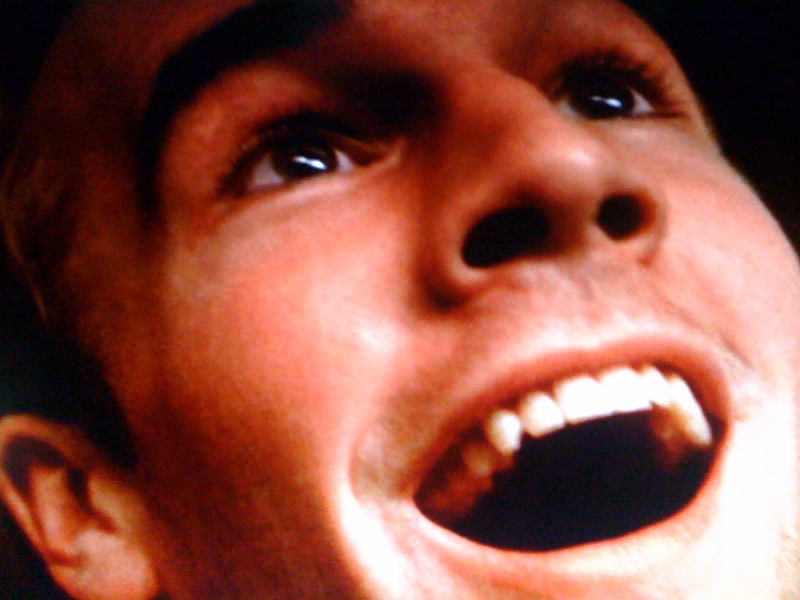
SELECTED RECENT READERLY RESONANCE
CHAMBER REVERBERATIONS
In this installment of selected
reverb from the Readerly Resonance
Chamber, we focus on the few Brat Pack books we've read so far this
year. It's a minor hole in our literary soul we're endeavoring to fill
this summer, even if we're currently on a longer-than-expected detour through
the streets of Stendhal. We'll add to this as we read more throughout time.
The pic above is a still from "The Rules of Attraction" cinematic adaptation,
which didn't underwhelm. That's Patrick Bateman's younger brother, Sean,
mid-orgasm, envisioning his partner's roommate. The actor was also in Dawson's
Creek, a show we never saw.
Less Than Zero by Bret Easton Ellis
Smog of War on Drugs–era LA as depicted
by a young BEE (< 21 years old). Sort of reminded me of The Stranger.
Coyotes, driving cars forever on coke, X, snuff films, young male whores,
honesty re: emotionlessness as a means to avoid pain re: meaninglessness
-- definitely has a softly beating moral heart beneath deeply tanned nihilistic
skin. Tastefully paced, well-timed sensationalism though never really reveled
in as in American Psycho -- this one's narrator averts his eyes
from pretty much everything. Made no sounds while reading, but enjoyed
reading, and said something stupid like "That was a good f--kin' book,
man" when I finished reading. Surprising depth despite its surface.
The Rules of Attraction by Bret
Easton Ellis
Maybe it helped that this reader attended
a small progressive liberal arts college a few years after this book came
out? Maybe this reader liked the various perspectives, the major glaring
gaps/inconsistencies when the stories overlapped? Maybe this reader just
liked reading about the young and the reckless now that he's on the other
side of youthfulness/recklessness (he hopes)? Maybe this reader appreciated
intertexual suggestions of Less Than Zero (Clay's in this), American
Psycho (Patrick Bateman narrates a chapter and his younger brother
narrates maybe a third of everything else), and even Donna Tartt's The
Secret History (an odd group of Classics students "looking like undertakers"
are mentioned). Mostly it felt real character-wise, content-wise, and I
thought the structure was well-handled and kept me engaged despite relative
plotlessness. Each of his books are a little different structurally, thematically,
but always with a similar tone and tact -- I'll definitely read the rest.
American Psycho by Bret Easton Ellis
Read stray pages of this long ago
when it was toilet reading where I lived one summer in college -- deemed
it idiotic smut. Loved the movie years later. Just finished it and found
it totally devilish delicious satirical genius. Pornographically exaggerated
descriptions of haute fashion, exclusive restaurants, stereo equipment,
extreme "Itchy & Scratchy"-style sadism, plus elaborate Penthouse Forum-ish
threesomes with hardbody whores, completed with in-depth appreciations
of the best of Genesis, Whitney Houston, and Huey Lewis & The News.
So funny, if "funny" is determined by the sounds I made while reading --
the uncomfortable chortle, the percussive snort, the starry-eyed cackle,
the shaking-head sigh at its BOLDNESS. Minimal paranoia re: legal or existential
repercussions for brutally offing all the homeless, the hardbodies, and
the whores of late '80s Manhattan. But what really did it for me were the
expertly handled scenes in which Wall Street types talked about NOTHING
for pages. Also, the description of an old photo of the father in a straightjacket-like
six-button double-breasted B&B suit, standing next to topiary animals
at his own father's estate, with "something the matter with his eyes."
That's the only mention of potential daddy issues. Mommy issues are dealt
with in a quick scene in a nursing home -- mommy's not so communicative
and wears $200 black Ray Bans, a gift from her son. Everything else re:
"why?" is suggested -- sometimes it's pure nihilism, sometimes sort of
like extremely effed-up soul-fighting against the trappings of super-rich
superficiality. For example, during a particularly inventive scene toward
the end involving a rat, a generous slice of brie, and a spread-eagle woman,
the narrator says: "I can already tell it's going to be a characteristically
useless, senseless death, but then I'm used to the horror. It seems distilled,
even now it fails to upset or bother me." That's maybe the book's challenge:
can Bret Easton Ellis upset readers with this character's descriptions
of brutality? (Or maybe the question isn't "can?" but "why do it?") I'd
say he does so with unquestionable inventiveness, and not just for sheer
sensationalism's sake. He effortlessly walks the cultural criticism/complicity
line, which is why so many reviews online are either disgusted (these readers
also probably find The Smiths's lyrics -- eg, "Cemetary Gates" -- depressing
instead of hilarious) or overjoyed by the unstable dynamic of sometimes
feeling close to and othertimes really distant from the narrator, a hyper-privileged
insider eviscerating everything atop the social pyramid, manifesting the
collective unconcious's desire to "kill yuppie scum." I was amazed at the
audacity of the book, the execution of it, the creation of the character
and the consistently evoked time and place. Uber-flowing sentences throughout.
Technically awesome, thematically gnarly stuff. Unforgettable images galore.
It maybe could've been 300 instead of 400 pages, but otherwise no complaints.
Very readable despite near-plotlessness. Also, again, it sparked more reflexive
readerly vocalization than anything I've read in a long time. But so then
why not a fifth star? Maybe because the amazingly consistent perspective/approach
naturally gets repetitive? Maybe the constraints on the narrator kept it
from the next level, which maybe could only have been achieved with more
explicit self-critique/philosophizing re: his psychology/upbringing and
the surrounding culture/everything, which probably would've undermined
a lot of what's already great about it? "Whew," I said when I finished.
"That was a good book."
Bright Lights, Big City by Jay McInerney
Turns out, McInerney is NOT Bret Easton
Ellis: McInerney's sentences seem tighter/more composed, clearer, sparser,
plus he's more traditional, less willing to temporarily disorient a reader
-- the "narrative face" of BEE's books sometimes seem like seriously
asymmetrical cubistic masks worn by someone pulled over and forced to do
a sobriety test, close eyes, hold arms out, then slowly bring both forefingers
to his nose. There's sometimes a sense that BEE won't be able to touch
his nose, considering his narrative face, but he manages to coax me into
playing the readerly rearrangement game and therefore passes the test.
(All this is based on an admittedly very limited scan of their literary
DNA so far). I like reading these books because they have semi-trashy reputatons,
so I come to them with low expectations they easily surpass, being talented,
insightful, entertaining, accessible, smart, funny, absolutely literary
authors. And lo/behold, surprise/surprise: this one's not really about
doing cocaine in early '80s NYC! Sure, there's the famous Bolivian Marching
Powder early on, but otherwise "you" (second-person POV worked just fine
for me) are only 24 years old and recently abandoned by your model wife,
plus you're an aspiring writer/fact checker at what's pretty much the New
Yorker. You hoover some lines sometimes but mostly you've hit bottom and
are ready for a new start. It's a traditional story, with above-average
characterization, some humor (only a few LOLs, a lot more silent amusement),
but it's the voice that won me over, the attitude of those tight snappy
entertaining sentences. It's a coming-of-age book, like Less Than Zero,
by a young man about a young man. I'll definitely read Brightness Falls,
if not everything he's written.
Gilead by Marilynne Robinson
This isn't a Brat Pack book but Housekeeping
did come out in the early 1980s, so let's just go ahead and add Gilead
to
this installment. First, this surprised me with its humor and its clarity,
both of which kept me engaged, not to mention graceful, lofted wisdom (which
I expected to encounter, of course) that never really seemed pedantic thanks
to the narrator's earnestness re: his doubts re: pretty much everything
other than the nature of faith (ie, silence filling an empty church at
dawn). I appreciated the baptizing of cats, descriptions of water and light,
and an ash-cake communion in the foreground with a ruined church in the
background as old women release their long hair. If 30 or 40 pages were
cut between pages 140 and 200, I'd have been much more enthusiastic --
thought that 60-page stretch dragged as it introduced the complication
of the narrator's concerns about young Boughton. In any case (<-- that's
a Marilynne catchphrase, folks), I dog-eared dozens of pages, sometimes
the top and bottoms of pages. Will maybe read it again and will definitely
give Housekeeping another go. I liked how I felt as I read this
book, what it did to my perceptions, how I once or twice referred to something
as a "grace" . . . all this despite the very conspicuous lack of Bolivian
Marching Powder, snuff films, rats and brie . . .

|
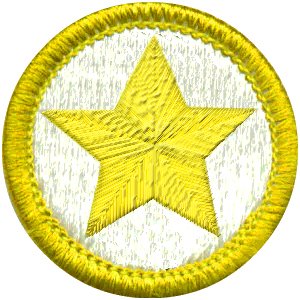
STORIES, ESSAYS, AND UNCLASSIFIABLES
THAT DESERVE SPECIAL DISTINCTION
AS CONTRIBUTIONS TO THIS SITE AND
SOCIETY AND SERVE TO INSTRUCT
POTENTIAL SUBMITTERS RE: WHAT WE'RE
LOOKING FOR, ALONG WITH
TEN
VOLUMES OF REJECTION LETTERS ACCESSIBLE HERE.
PS. Don't miss our featured fictional
presentation,
Last
Days by Mike Ingram

archive
- about - submissions
|
|